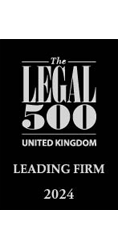Pursuing Criminal Proceeds
In 2016/2017 enforcement agencies in the UK confiscated £201 million from criminals using their existing powers, primarily derived from the Proceeds of Crime Act 2002 (POCA).
Whilst the headline figure is impressive, before a Confiscation Order can be made the authorities first have to:
- Bring criminal proceedings and obtain convictions by meeting the ‘beyond a reasonable doubt’ evidential threshold;
- Ensure that the convictions satisfy the ‘criminal lifestyle’ trigger criteria as set out in Section 75 of POCA.
The POCA process, from charge through to conviction and then confiscation through to the realisation of the criminal’s assets could easily take 4-5 years, costing the tax payer eye watering sums in legal costs.
Whilst the intention was always that the authorities would enjoy a good return on the costs invested in recovering these proceeds of crime, spiralling legal fees and the difficulty of enforcement has left many identifying this policy as being driven by principle rather any realistic hope that it would provide a good financial return for Treasury.
The increasing layers of anti-money laundering obligations being imposed over time should have made acquiring assets in this jurisdiction using criminal proceeds all the more difficult. Nevertheless, there is clearly an enormous amount of money still flowing into the UK from abroad whose provenance remains dubious. However, there is unlikely to be sufficient evidence of criminal conduct as against these foreign “investors” to secure the required convictions required to confiscate any proceeds of crime, especially if that criminality took place abroad.
The Unexplained Wealth Order (UWO)
UWOs are a new investigatory tool created by the Criminal Finances Act 2017, which in part aims to assist in the recovery of criminal assets. From 31 January 2018, relevant enforcement authorities like HMRC or the Serious Fraud Office have been able to apply to the High Court to obtain these investigation orders.
An order will require people to explain their interest in particular property (valued at over
£50,000) in circumstances where it looks like they cannot afford it and they are suspected of being involved in serious crime.
‘Serious crime’ includes obvious examples such as drug trafficking, prostitution and slavery. However, other more general offences relating to fraud and cheating the public revenue are also included.
Being involved in a crime does not just mean committing one. It can also mean facilitating the commission of a crime by someone else. This could include wilfully shutting your eyes to money laundering or tax evasion schemes.
To comply with an UWO, the Respondent must provide a detailed statement which:
- Sets out the nature and extent of their interest in the property;
- Explains how they obtained this interest, including how any costs incurred were met;
- Sets out such other information as the Court order specifies about the property.
If the property in question is held by trustees of a settlement, then the court order may require the Respondent to disclose the identity of any settlor.
If the respondent does not comply with the UWO, then the property in question will be presumed to be recoverable property under any later proceedings taken under the Proceeds of Crime Act 2002 unless the respondent can show otherwise.
If the response is false or misleading, the respondent may be liable for a sentence of up to two years imprisonment or a fine or both if they recklessly or knowingly make false statements to the Court about the property or any other matter in the Order.
As with Worldwide Freezing Orders, complying with the disclosure obligations is often the stage where respondents fall down and they then face further litigation about this issue and the prospects of jail.
A failure to comply with a UWO may well trigger a civil recovery claim being pursued under POCA. Even compliance with a report may trigger such a claim but the key benefit for the recipient of a UWO is that the disclosures contained in their report cannot be relied upon to found criminal proceedings.
Conclusion
Unexplained Wealth Orders are certainly a powerful investigatory tool. By reducing the evidential threshold from ‘beyond a reasonable doubt’ to ‘the balance of probabilities’ and eliminating the procedural burden of criminal proceedings, the authorities appear to have a way to negotiate around some of the burden imposed by POCA in their fight against money laundering.
The recent high profile success of the National Crime Agency’s UWO against Mrs Zamira Hajiyeva, whose lavish Harrods’ lifestyle appears to be connected to the fraud her husband was convicted of committing against the Bank of Azerbhaijan, has certainly caused a few eyebrows to be raised.
Already UWOs have anecdotally been linked to a number of Russian Oligarchs approaching the Kremlin to discuss returning to Russia. From an enforcement point of view, the real test will be whether they allow the authorities to recover more assets as the proceeds of crime in the future.
For more information contact: Philip Rubens or Navinder Grover






